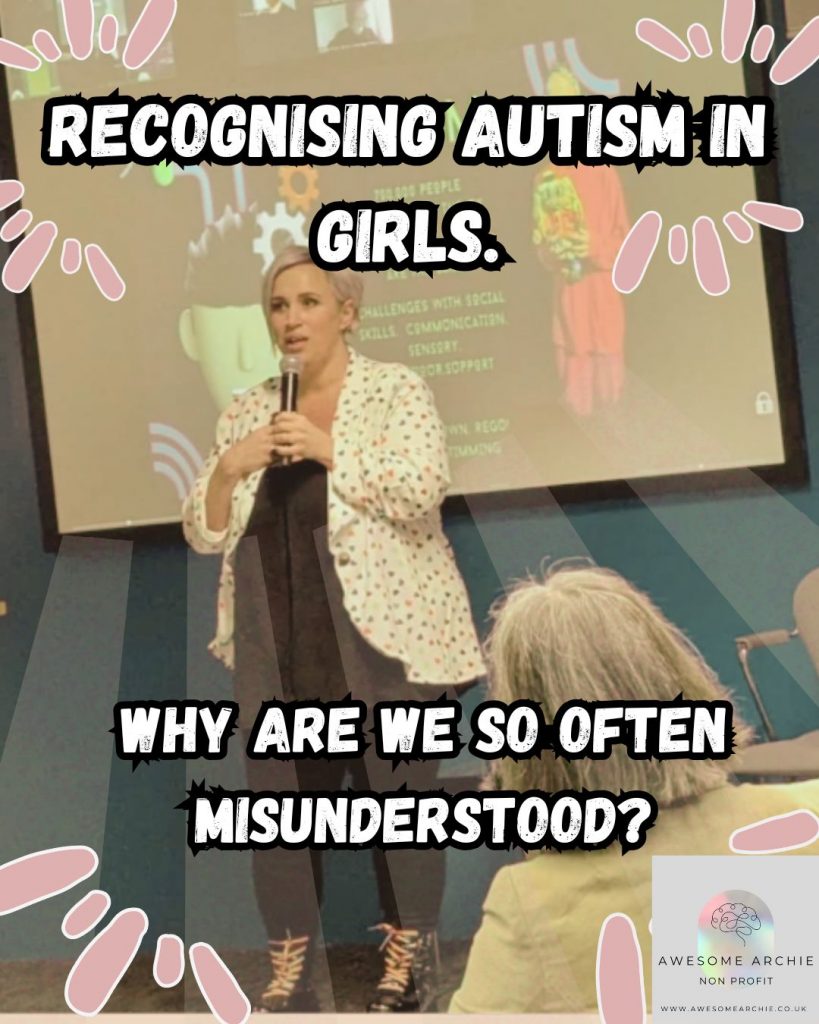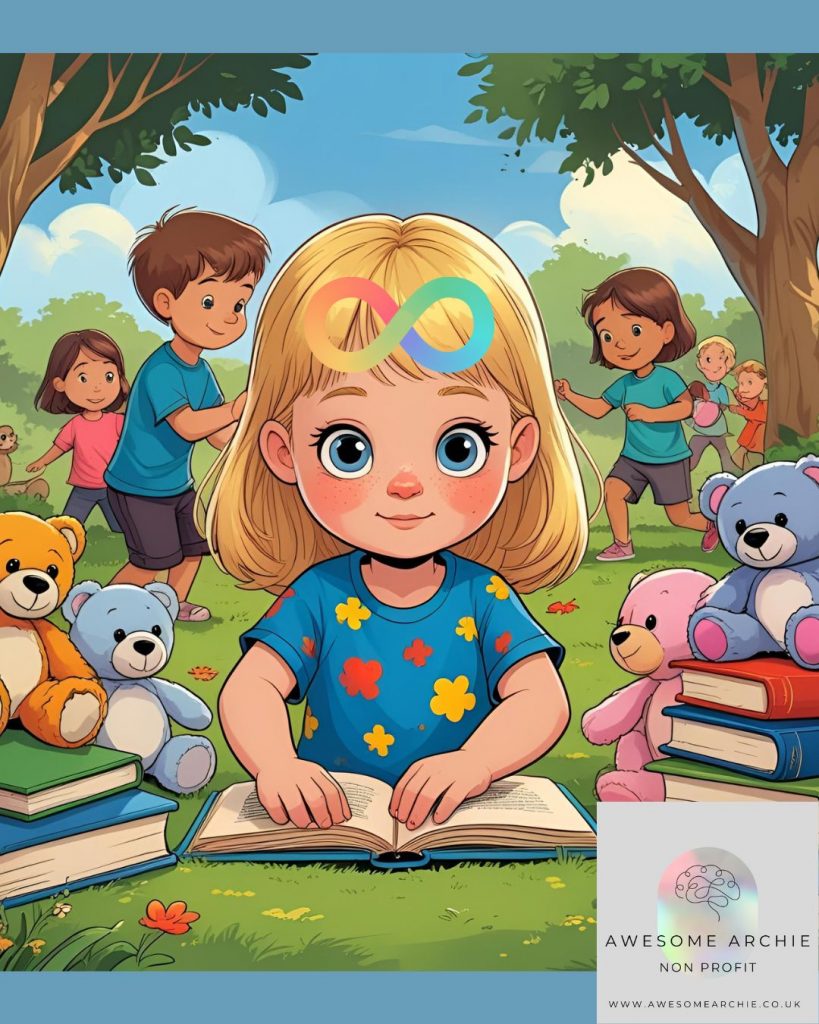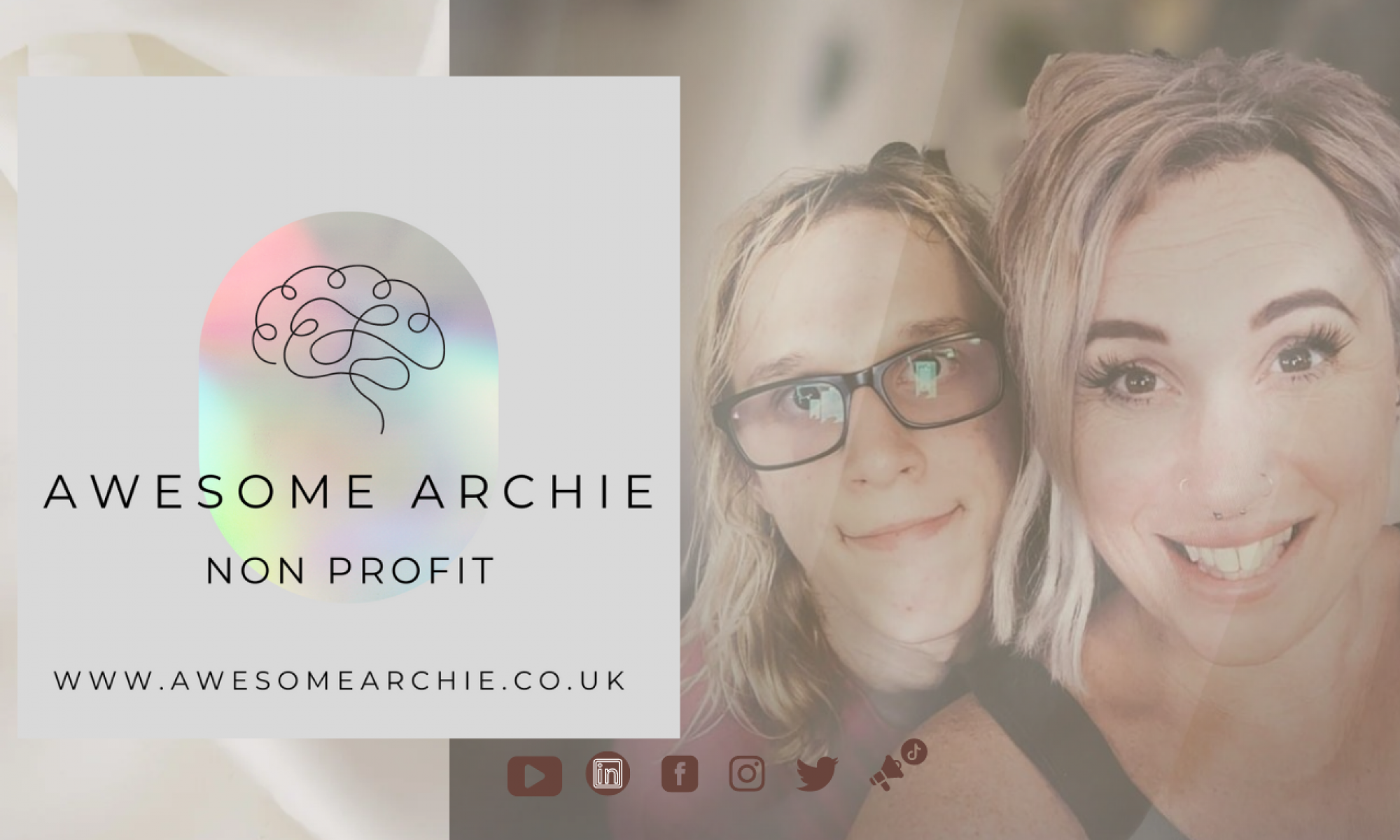
Archie and I are fortunate to be in regular contact with hundreds of neurodivergent families, multiple schools and thousands of online followers . We aim to answer their many questions and always give OUR honest opinion and advice.
I’m sure by now you know that there is NEVER a one size fits all situation and EVERY autistic person is completely unique. Although there are similarities and its those commonalities that are used for a formal diagnosis, the traits” present very differently in everyone. This why official diagnosis has to be done by very well qualified professionals.
For decades, autism has been widely misunderstood by so many— and it feels like nowhere is this more evident than in the way we so often miss or misinterpret the “signs” in girls. Despite the ever growing awareness, many autistic women and girls still go undiagnosed until adulthood, if at all. And by then, they’ve often spent years struggling, masking, and wondering why things feel harder for them than everyone else. This was me!! I was also diagnosed with HFA when all along my anxiety is a byproduct of my AuDHD.
So why does this happen? And more importantly — what can we do to understand ourselves (or our daughters, sisters, nieces, granddaughters, pupils) better?
Autism Was Historically Studied in Boys
Much of the early research into autism was based on young boys, meaning that the diagnostic criteria and examples used for years have been “male-presenting” by default. The old fashioned classic signs — like intense interests in trains or lining up toys — don’t always reflect how autism might look in girls even today!
Newer studies are suggesting that girls often present VERY differently. Their autistic “traits” can often be more internal, less “disruptive”, ( sorry for the negative language, I mean no offence) and more emotionally complex. As a result, many professionals simply don’t recognise them or see them as something else.
Girls Are Often The Masters of Masking – I Mask Every Day!
Many autistic girls (and women) become expert social chameleons. From a young age, we have had to learn to copy others, mimic behaviours, and rehearse “scripts” to get through social situations. I did this all through my adolescence but I didn’t even know I was doing it! It was only as we learned about the boys diagnosis we could see the similarities and struggles .
On the outside, we may seem chatty, friendly, or even popular( I know, big headed!) — but inside, we are so often exhausted, anxious, or confused by the constant effort it takes to “fit in.” This is why I try not to fit in any more and adapt my surroundings to be with mostly neurodivegent people or those with a great understanding.
For little girls this masking can hide their challenges so effectively that even teachers, parents, or doctors may not see the signs. But masking doesn’t mean a person is coping — it often means they’re trying to survive. THIS IS NOT SUSTAINABLE!
Struggles Are Often Mislabelled
Instead of being identified as autistic, many girls are diagnosed with:
- Anxiety
- Depression
- OCD
- Eating disorders
- Personality disorders
These co-occurring issues may be very real — but they’re often symptoms of undiagnosed autism, not separate diagnosis. Finding the primary diagnosis of AuDHD was what knitted all of my individual challenges to together and has then led for me to have a greater understanding of what I need and why.
Girls might also be labelled as “dramatic,” “moody,” “bossy,” or “shy,” without deeper reflection on what’s underneath those behaviours.

So What Can We Do to Help Ourselves and Each Other?
If you think that you or someone you love might be autistic, here are steps you can take to move forward with curiosity and compassion:
1. Learn about female autism traits
Start with voices from autistic women and girls. Look for books, blogs, and videos that reflect your experience — not just clinical lists of symptoms.
Some signs to explore:
- Deep empathy and emotional sensitivity
- Intense interests (that may seem “normal” like animals, books, or celebrities)
- Trouble with social fatigue or small talk
- Sensory issues (clothing, noise, lights)
- Preference for routines, structure, or “sameness”
- Replaying conversations or obsessing over social mistakes
2. Speak to professionals who understand female and PDA profiles
Not all GPs or specialists are up to date with modern autism understanding — especially when it comes to girls and women. Look for neuro-affirming professionals, or reach out to charities and organisations that specialise in female autism. We recommend The SENDcast as a great start.
3. Connect with community
Whether online or in person, finding others who “get it” can be life-changing. You’re not alone, and you’re not imagining it. Spaces like Instagram, Facebook groups, and neurodivergent-led podcasts can be great places to start.
4. Reflect on your own journey
Diagnosis is helpful for many, but not always necessary. If learning about autism helps you understand and support yourself or your child better — that insight is powerful in itself. You don’t need permission to be kind to your brain.
Missing the signs of autism in girls doesn’t mean we’ve failed — it means we’re still unlearning old ideas. As awareness grows, more and more girls and women are finally seeing themselves clearly for the first time — and learning that their differences are valid, meaningful, and even beautiful.
Autism isn’t just something to be “spotted” — it’s something to be understood, embraced, and supported.
Because when we stop asking, “Why didn’t I see it sooner?” and start asking, “What do I need now?” — that’s when real acceptance and healing begins.
Disclaimer:
The views and experiences shared here are our own and based on our personal journey as a neurodivergent family. We are not medical or clinical professionals. What works for us may not work for everyone. Always seek professional advice if you’re concerned about your child’s needs or development.
